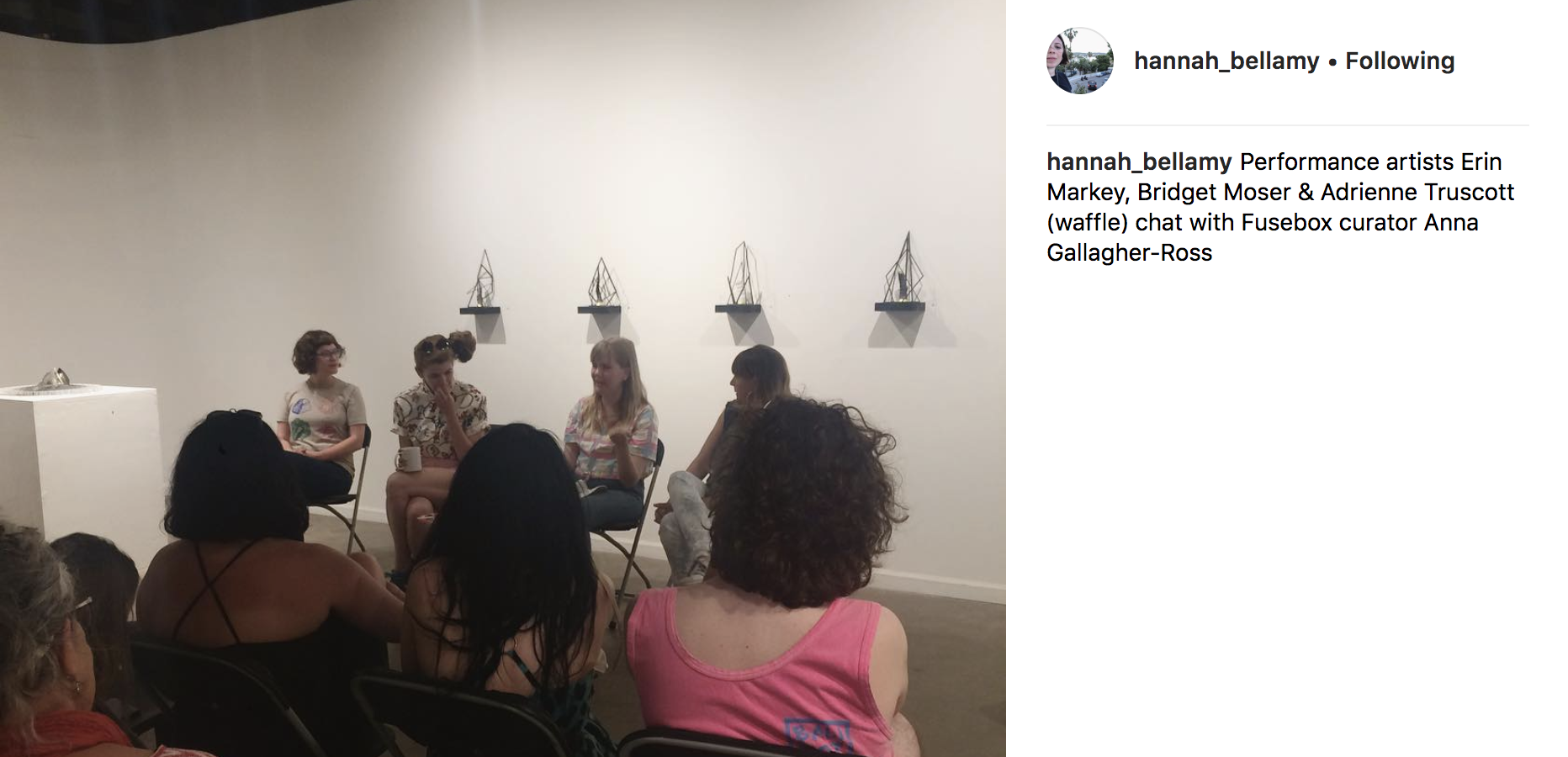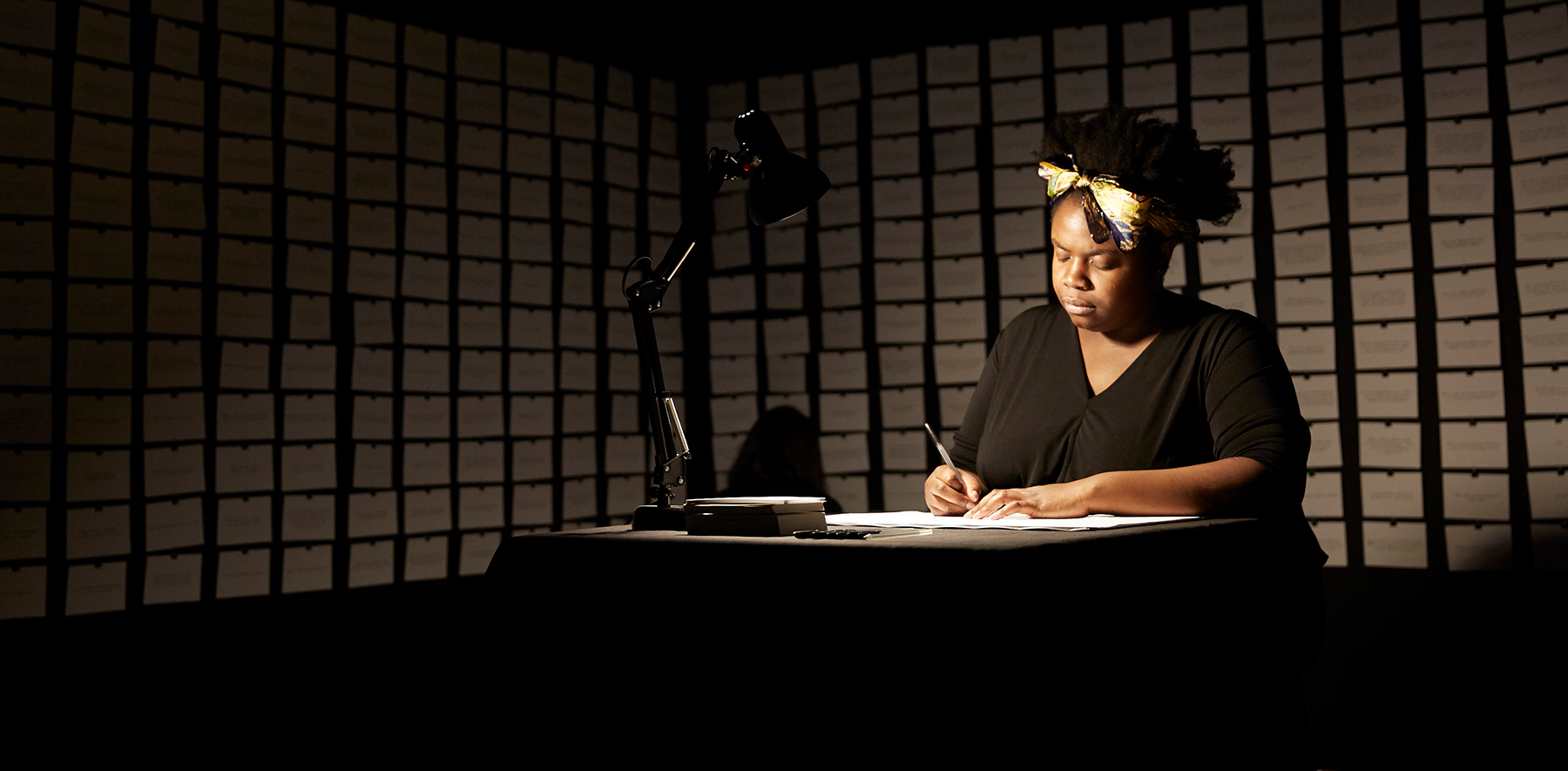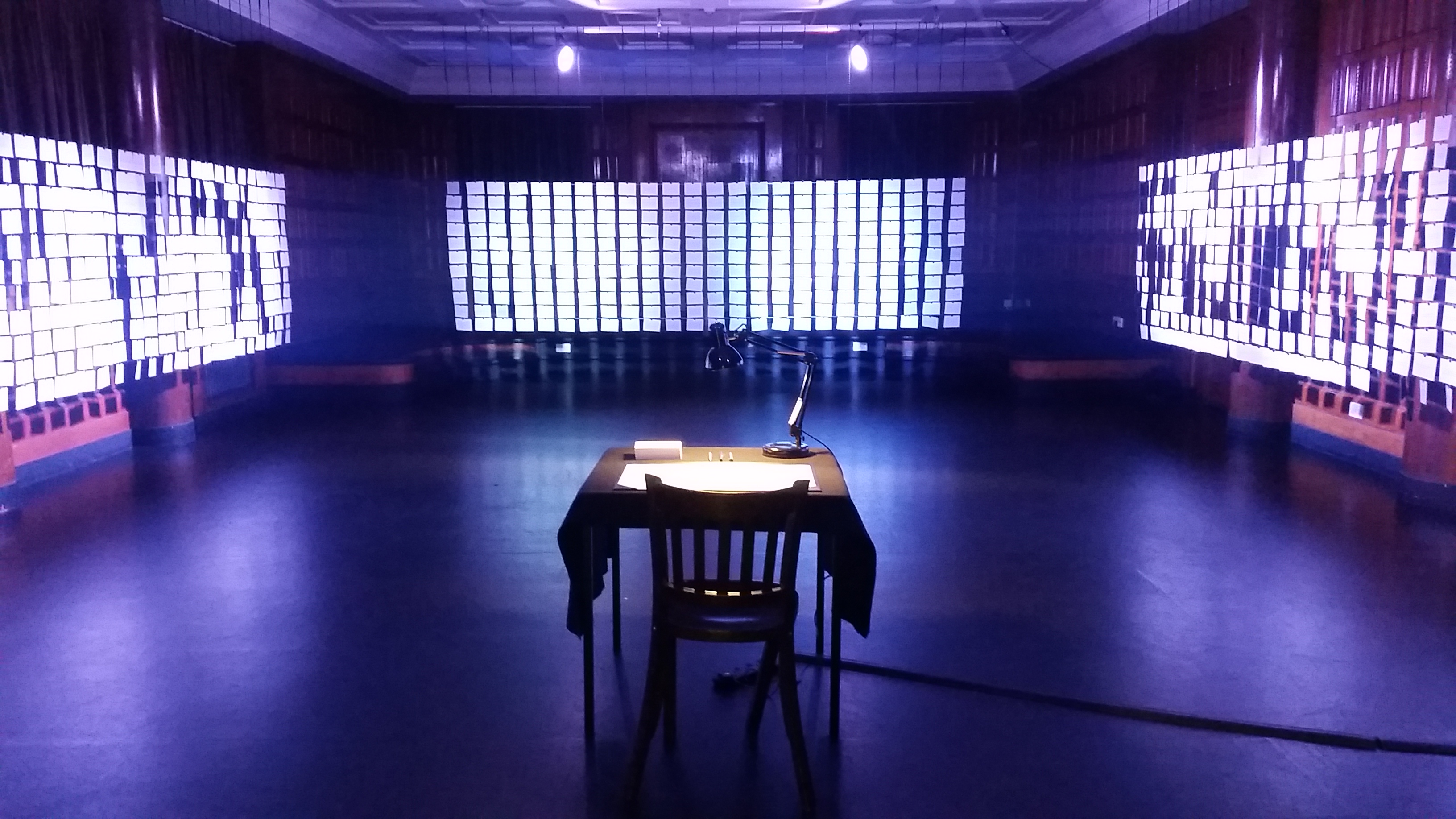The Intellect and Resilience of Race Cards – A curatorial statement by Hannah Bellamy
December 04, 2018

I went to Selina Thompson’s Race Cards on a surreal day.
I had the opportunity to fly to Austin, Texas to meet my colleague, PuSh Interim Artistic Director Joyce Rosario at Fusebox Festival. A contemporary live performance festival, Fusebox is similar to PuSh in many ways, including its programming and age. It too emerged 15 years ago as a performance series and has since grown into a festival featuring artists from around the world.
The details of the day are important because Race Cards is about context and place, in a deep way. I started with a Waffle Chat: Fusebox’s own brand of artist chat, in which complimentary waffles in the shape of Texas are served to attendees.

Then I embarked on a walking tour of sites along East Austin’s Cesar Chavez Street with a zine published by Fusebox in hand as my guidebook. The zine, La Calle Primera is curated and designed by lifelong Austinites Alan Garcia and Claudia G. Aparicio Gamundi. It is a visual tribute to the historic working-class Mexican immigrant community in the area. For generations, the street has been home to cantinas, taquerías, piñata stores, sno-cone stands, and many more family-owned businesses. Most of these businesses are gone now, except a few piñata stores with colourful displays hanging from their eaves. I ate a couple tacos at a food truck before going into Race Cards, conveniently located in a black box theatre just a block off Cesar Chavez.
Race Cards is an installation of 1,000 questions about race, composed and written on cards by Selina. They are numbered and displayed in order. I started at the first question, thinking I would spend half an hour or so in the installation and read as many of the cards as possible. Almost two hours later, I had read each question. Some belong to a sequence of questions, in which Selina gently guides you through a conversation with yourself. Some practically hurdle off the card and knock you out.

Selina created Race Cards in research for her body of work, As Wide And As Deep As The Sea, which explores British Black Identity. At Fusebox, Selina had adapted some of the questions to speak to particular issues of race in the United States. My experience of Race Cards in East Austin that day—the bottle of Mexican Coca-Cola from lunch still recent in my taste buds—was nothing less than transformative.
But I couldn’t stop thinking about what the experience of this work would mean in Vancouver. Like Austin, Vancouver also has layers of history, diaspora, and peoples that can be traced to any given stretch of a city block—and questions about race are very much embedded in that.

Selina provides two instructions for the audience when they enter the installation: pick one question to answer and leave behind on a card, and pick one question to copy down and take with you. I tripped up when the time came to pick a question to answer. The artist says that these are not meant to be clever questions. Yet I found myself blanking on how to articulate my answer. I think part of it is that the work provoked conversations that I don’t often have with people—let alone with myself. I try to read and listen as much as I can, but I don’t feel prepared to speak up and share my own perspectives as a white person, even when the questions are directed at me.
Selina and I are close in age, feeling our way through the latter years of our twenties. Selina’s perspective, well-educated in both critical discourse and pop culture, is at once a lesson and a joy to spend time immersed in. I can’t recommend enough for people of all ages and backgrounds to experience her intellect, softness and resilience through Race Cards.